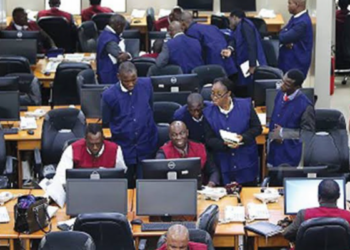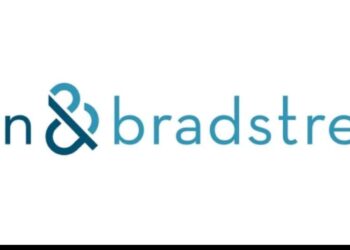“Verify your claims in Unyogba MFB” – this call to action on the Nigerian Deposit Insurance Corporation (NDIC) website serves as a reminder that banks can still fail in Nigeria, despite the assurance of insurance coverage.
The collapse of Unyogba MFB in Kogi State highlights the risks associated with “new generation” banks, particularly microfinance banks (MFBs), which have gained popularity as virtual or challenger banks.
In 2018, the central stated that 182 financial institutions cut across different states of the country had their licenses revoked. They include – 154 microfinance banks; 6 primary mortgage banks, and 22 finance companies.
CBN said 62 of the microfinance banks had already closed shops; 74 became insolvent; 12 were terminally distressed; while six voluntarily liquidated.
Fast forward to today, the recent cash shortages in Nigeria have led to an increasing number of Nigerians turning to these MFBs (particularly those that operate mostly on mobile phone apps) for their banking needs. Experts are now urging caution about the need for regulation and transparency to ensure the safeguarding of customer deposits, as this should be the utmost priority of the central bank.
Fintech companies, commonly known as neo-banks and mostly operating under the license of MFBs, have also emerged as a solution for many Nigerians trying to conduct financial transactions, as traditional banks’ apps and USSD codes continue to experience unreliability.
However, the associated risk of maintaining deposits with these banks has made some experts urge caution as safeguarding customer deposits should be the utmost priority of the central bank.
What Nigerians are saying
A simple hashtag search of any of the top mobile money apps reveals growing complaints Nigerians are having with apps. Some have complained of transfers made but the beneficiaries claim they have not received them and alluding to the failure of the banks to reverse failed transfers.
Others express fear that the spate of migration to some of these apps might pose a problem in the near future especially as not much is known about these banks. Most don’t have visible addresses and their customer care is not as responsive as traditional banks.
Some users also wonder how the business model of these mobile money companies can hold up as most of them do not charge fees operating largely free.
7 months with OPay and now this is my question. If all transfers are so free and fast. How then do they make money? pic.twitter.com/r77fLd186n
— Alabi (@the_Lawrenz) March 16, 2023
What the experts are saying
Dr. Godwin Imoibe, a lecturer at the Department of Banking and Finance, University of Nigeria told Nairametrics that it is clear that although the cashless policy is good, the traditional banks do not have the capacity to absorb the traffic of electronic transactions, hence the fintech come in handy.
He, however, noted that while the fintech is a positive development at this moment, the rush to store value with them may be a recipe for a bigger disaster because their financial statements are not known, and the public may not know how healthy they are, and the possibility of not knowing the people running the fintech companies may be a recipe for a bigger problem if they are not properly regulated by the Central Bank.
He said as of now, the public can only rely on the CBN that has issued the fintech companies licenses, and know how well they are incorporated, as well as what their capital base is.
“As of now we don’t know how much they are worth, or who are the people behind them; for now, we can only rely on the registration that the CBN has done, as well as the due diligence the CBN has done; so, it’s somehow tricky. But given the current situation, since the fintech companies can assist in alleviating the suffering of the people, it’s a good thing. But the Central Bank needs to come out and reassure Nigerians of the strength of the fintech to handle the pressure being put on them,” he said.
He also said there is a need to know the people that are behind the fintechs as they are involved in banking services.
Section 10.3 of the draft guidelines also requires National MFBs to publish their annual accounts in a national daily newspaper. It however does not require the same for regional or state MFBs. They are only required to display it in their office. Considering that most of them operate online and via banking apps, the regulation needs to include online publications of their annual statements and other publicly required information.
The chief executive of Anthill Concepts Limited, Dr. Emeka Okengwu, concurred with Dr. Imoibe. Attempting to allay public fear, he said there is always a link to transferring money between the fintech and traditional banks. He however noted that it does not remove the fear of risk. He noted the incapacity and inefficiency of the networks that support the cashless policy, stressing that they are not adequate and need to be expanded.
On the other hand, he said there should be a regulatory authority that takes oversight of them. He cited that if a person loses his money in the traditional banking system there are provisions in the Nigeria Deposit Insurance Company (NDIC), the Asset Management Corporation of Nigeria (AMCON), and other mechanisms to protect the interest of the public, but expressed skepticism the same applies to the fintech. He said all transactions in the country should be regulated by the CBN.
Dr. Innocent Awason, a stock market analyst, said up to the moment, the percentage of non-performing loans in the fintech firms are shrouded in secrecy.
“I stand to be corrected, but there is hardly any report about non-performing loans among these fintech banks made available to the public. So how will the public know if they are healthy or about to fail? For that concern, I think it’s risky keeping large amounts in these banks, although they are serving a good purpose today,” he said.
Laws that govern fintech
Moses Afegbua, also a stock market analyst, however, noted that while the Central Bank of Nigeria and the Securities and Exchange Commission are the major regulators that govern fintech companies, there are other key regulators that either complement the roles played by the primary regulators or act as the major regulator due to the nature of services/products offered.
Afegbua cited that the NDIC recently established a fintech and innovations unit to collaborate with innovators in the financial services sector to develop and promote technology-driven solutions, geared toward protecting depositors.
What the CBN regulations say: The Central Bank of Nigeria published the Guidelines for Licensing and Regulation of Payment Service Banks (PSB) in August 2020 as part of its efforts to improve financial inclusion. The guidelines provide useful provisions that drive at protecting customer deposits.
For example, PSBs and Microfinance Banks (MFBs) are subject to a 10% capital adequacy ratio which is meant to ensure they have adequate capital relative to the deposits they collect. In addition, they are also expected to maintain not less than 75% of their deposit liabilities in CBN securities, treasury bills, and other short-term federal government debt instruments at any point in time.
The regulation also provides that all the funds in excess of the operation floats of PSBs should be placed in deposit money banks. The regulation also limits how much PSBs can spend on fixed assets. PSBs are also not allowed to grant any form of loans, advances, or guarantees directly or indirectly.
The draft regulation for Microfinance banks also provides for a maximum of 15% of total deposits which can be invested in placements. In terms of investments in treasury bills, they provide for a minimum of 5% and a maximum of 10%.
Note: This article was updated to reflect new information





















